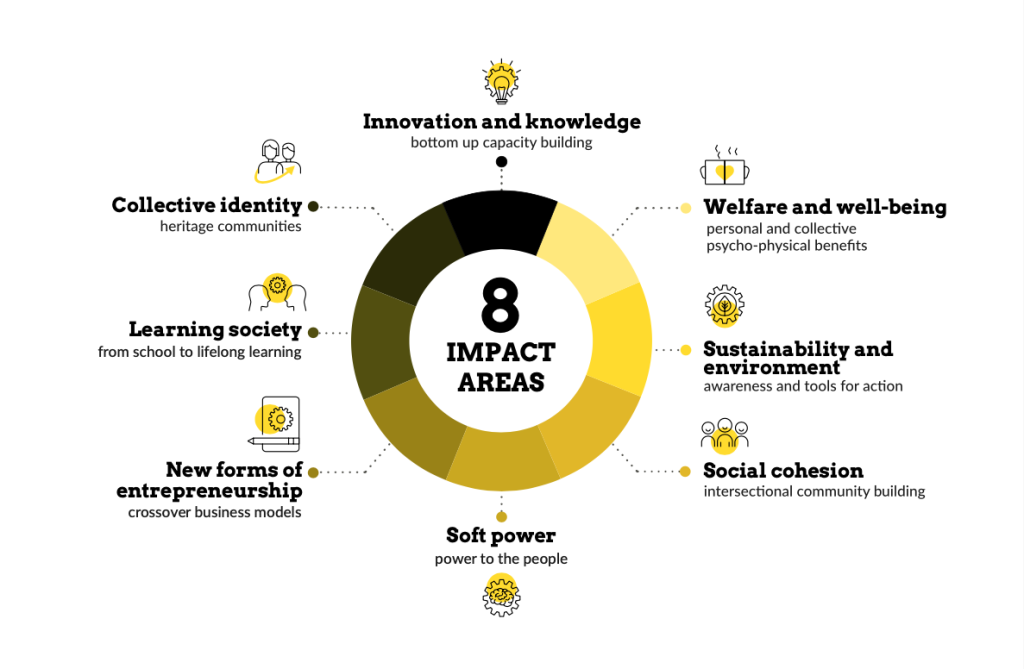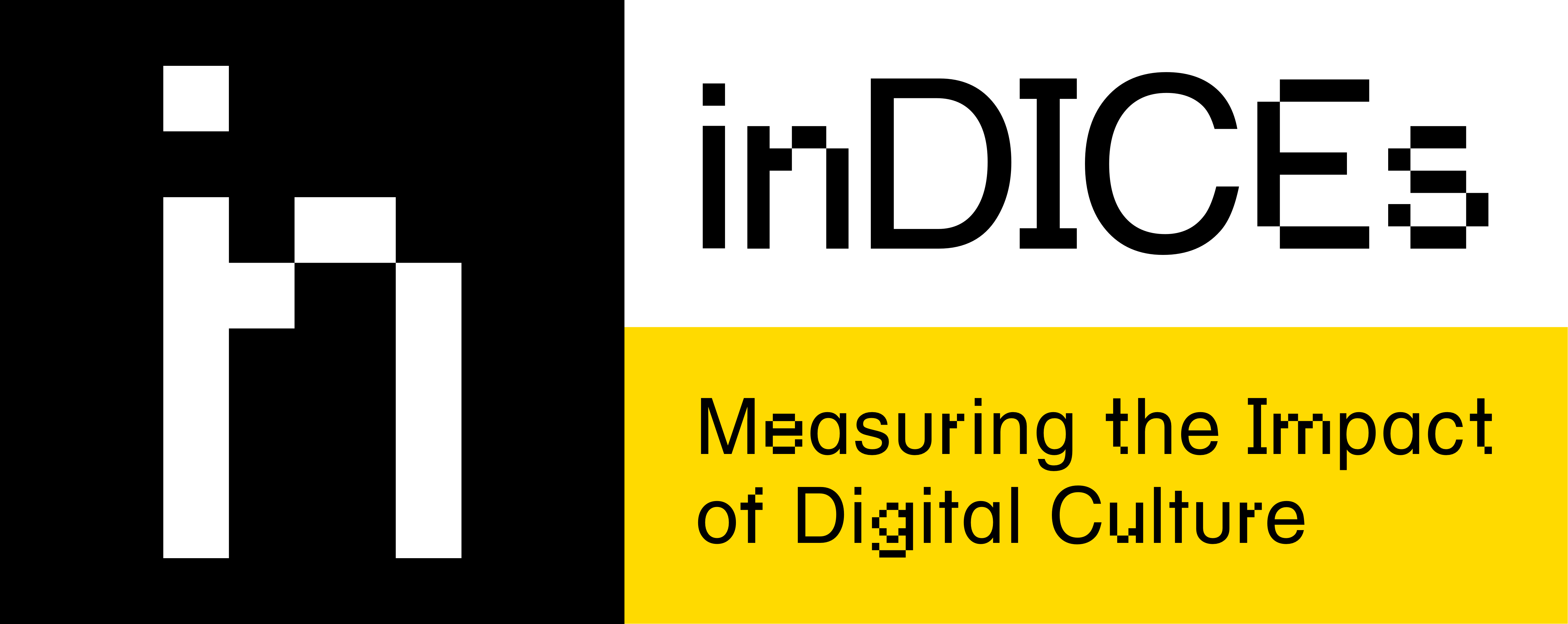The “Change impact assessment framework”
The “Change impact assessment framework” is a theoretical tool developed by the InDICEs team during the last part of the project.
What are the reasons for the development of this framework?
The EU Work Plan for Culture 2023-2026, the document adopted by the Council of Culture Ministers of the European Union which shapes EU cooperation on culture for the next 4 years, focuses on 4 priorities among which the enhancing of cultural participation and the role of culture in society is preeminent. Moreover, between the 21 main actions proposed, access to culture, cultural participation and democracy are issues of high relevance.
In the light of these collective objectives and of several research work and literature collection, inDICEs developed a tool for orienting the cultural and creative sector and institutions toward the evaluation of impacts of active cultural participatory activities, the “Change impact assessment framework”. The framework, based on the 3.0 Culture perspective – where the participation is effective whether there is a collective proactivity and regards democratic processes of co-creation, was developed from a clear premise: even if active cultural participation can generate impressive positive impacts and literature proves that it is the best strategy to create positive impacts in the context of digital cultural co-creation, it is still rarely observed in the European cultural heritage sector. This is why InDICEs wants to motivate the cultural heritage sector to consider the importance of understanding and evaluating the impacts of active cultural participation in the digital realm.
Specifically, here we want to help cultural practitioners, policy makers and cultural heritage professionals to understand that active cultural participation can positively impact communities on various levels and layers, from developing psycho-social abilities to raising awareness and calling to action on global challenges.
What will you find here?
In the framework, you will find a new perspective on how digital active cultural participation has a fundamental role on participants in a wide spectrum of psycho-social, environmental and innovation areas.
After assessing what is the role of digital technologies in promoting and facilitating cultural participation (also considering the dynamics of the attention economy and the role of social skills and capabilities), we advanced computational social science analyses aimed at understanding which is the behaviour of a vast amount of users in open digital platforms (Wikipedia, TikTok, Twitter, Facebook, Instagram, Twitch, A03). The results converged on the same point: there is still a considerable active participation gap. This led us to develop an Impact Areas framework that shows, according to a wide collection of literature and best cases, the benefits that active participation in various cultural activities in the digital sphere can generate, touching the following 8 spheres:
- Innovation and knowledge,
- Welfare and well-being,
- Sustainability and environment,
- Social cohesion,
- New forms of entrepreneurship,
- Learning society,
- Collective identity,
- Soft power.

The framework is a useful instrument for CHIs for raising awareness among cultural heritage institutions about the importance of designing for the impact that active cultural participation in the digital sphere can have on participants, specifically in 8 identified areas. It can also be used for orienting the planning of a participative activity online and for building a set of tailored indicators for measuring if any positive change happened in all or some of the impact areas, after the active participation of the targeted community in the activity.


